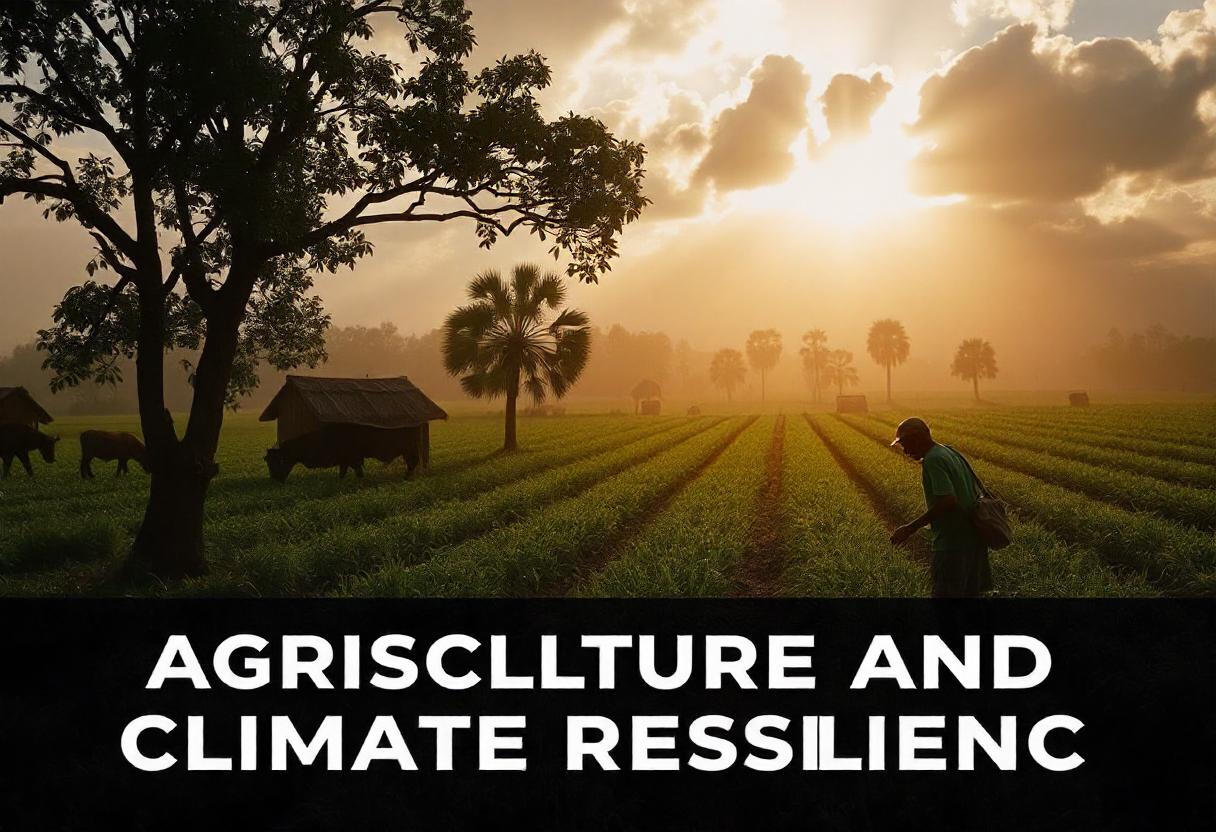
Understanding Climate Resilience in Agriculture
Climate resilience in agriculture refers to the ability of agricultural systems to anticipate, prepare for, and respond to climate-related changes and stresses. This involves adapting farming practices to withstand extreme weather events, shifting climatic patterns, and long-term environmental changes.
The Impact of Climate Change on Agriculture
Climate change affects agriculture in various ways. Rising temperatures, changing precipitation patterns, and increased frequency of extreme weather events can lead to reduced crop yields, altered growing seasons, and increased vulnerability to pests and diseases. These impacts necessitate the development of resilient agricultural practices to ensure food security and sustainable farming.
Key Strategies for Enhancing Agricultural Resilience
Several strategies can enhance the resilience of agricultural systems to climate change:
- Diversification: Growing a variety of crops and livestock can reduce the risk of total loss from climate-related events and improve overall farm stability.
- Soil Management: Implementing practices like conservation tillage, cover cropping, and organic amendments helps maintain soil health and reduces erosion, making it more resilient to extreme weather.
- Water Management: Efficient water use through techniques like drip irrigation, rainwater harvesting, and soil moisture monitoring helps ensure that crops receive adequate water even during droughts.
- Crop Selection and Breeding: Developing and selecting crop varieties that are resistant to heat, drought, and other climate stresses can improve resilience. This includes breeding for traits such as drought tolerance and pest resistance.
- Agroforestry: Integrating trees and shrubs into farming systems can provide shade, reduce wind erosion, and improve soil structure and fertility, contributing to greater resilience.
- Technology and Innovation: Using advanced technologies like precision agriculture, climate modeling, and remote sensing can provide farmers with better data for decision-making and help them adapt to changing conditions.
The Role of Policy and Support Systems
Effective policies and support systems are crucial for promoting agricultural resilience. Governments and organizations can support resilience efforts through:
- Research and Development: Investing in research to develop new technologies, crop varieties, and farming practices that enhance resilience.
- Extension Services: Providing farmers with training and resources to adopt resilient practices and technologies.
- Financial Incentives: Offering subsidies, grants, and insurance programs to support farmers in implementing climate-resilient practices and recovering from climate-related losses.
- Collaboration and Knowledge Sharing: Encouraging collaboration between researchers, policymakers, and farmers to share knowledge and best practices for climate resilience.
Community and Farmer Involvement
Local communities and farmers play a vital role in building climate resilience. Their involvement in decision-making, adoption of innovative practices, and sharing of local knowledge can greatly enhance the effectiveness of resilience strategies. Engaging farmers in participatory approaches helps tailor solutions to specific local conditions and challenges.
Future Directions for Agricultural Resilience
Looking ahead, continuous efforts are needed to strengthen agricultural resilience. This includes investing in research, adapting policies, and promoting sustainable practices that can withstand the impacts of climate change. By integrating resilience into agricultural systems, we can work towards a more secure and sustainable future for global food production.